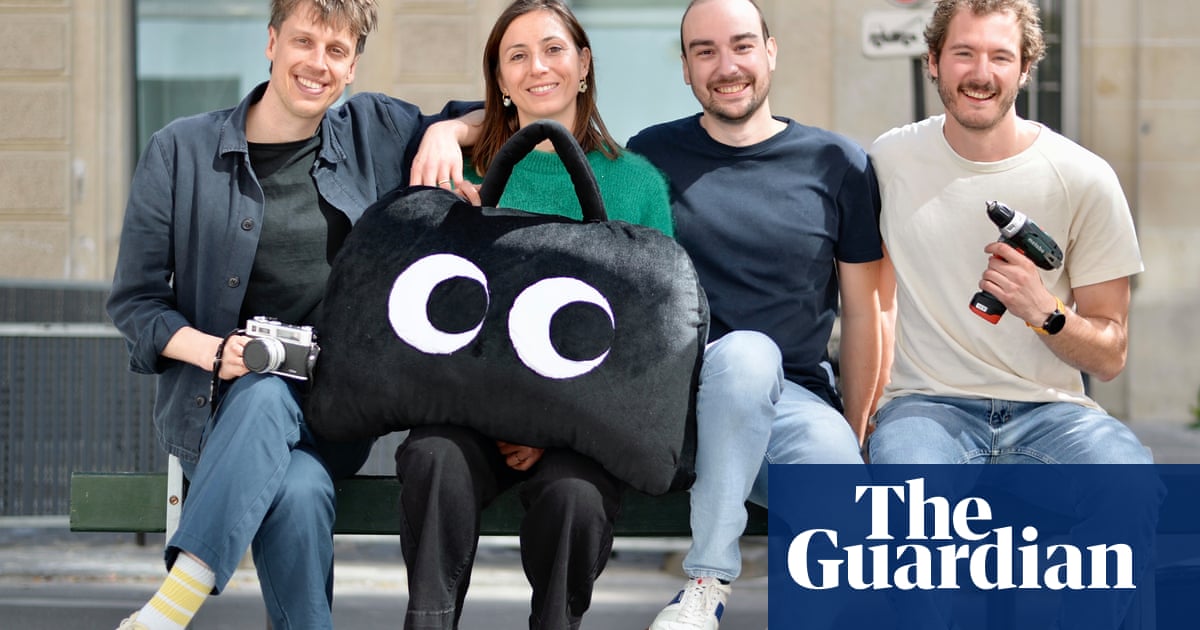Do you need a kitchen mixer, a drill, a tent or a raclette machine? Perhaps you have a bread machine, an ice-cream maker or a toastie maker in the cupboard gathering dust?
If the answer to either question is “yes”, Lucie Basch has a solution. The French entrepreneur and pioneer of a hugely successful anti-food waste app is now turning her attention to a different problem: the simultaneous underuse and overconsumption of everyday household objects.
Basch has co-founded a new app, namedPoppins, in reference to the world’s most famous nanny’s seemingly bottomless carpet bag full of impossibly large items, including a hatstand. The aim is to connect people who have things they don’t need with people who might want to borrow or rent them under the slogan “own less, have more”.
Basch says research has shown the average French person owns about 2.5 tonnes of objects, around a third of which are never used.
“It doesn’t make sense ecologically or economically,” she said. “The aim is to allow everyone to find what they need easily and nearby. Collective prosperity is the only way forward.”
She added: “The raclette machine is a great example. You buy one, use it twice a year, and it takes up half your kitchen space. Yet it is easy to rent.”
Launched in April, the app attracted 40,000 users inFrancein its first few weeks. It displays objects available in an area, some of which can be borrowed, others rented. Poppins takes a commission. The wider aim is to make sharing more popular than shopping; Poppins includes rental shops and borrowing outlets like libraries in its listings.
In the app’s first weeks, the most sought-after household item was a raclette machine. Basch says with the summer holidays approaching, tents and camping equipment are in demand, along with petanque sets, cots and baby beds, party items, barbecues and outdoor equipment. About 65% of the offers on Poppins are free loans. The app, which is moderated, does not allow users to advertise weapons or sex toys.
Basch said: “The beauty of sharing is it combines ecological, economic and social incentives. If we make sharing normal, less is produced, which is ecological, we will spend less because it’s cheaper to rent or buy and we will be more social as we are talking to each other again.
Sign up toThis is Europe
The most pressing stories and debates for Europeans – from identity to economics to the environment
after newsletter promotion
“It’s moving from linear growth to circular growth. The linear model doesn’t work any more and destroys the planet. Everyone in business understands the need to do this, even big companies, who are starting to contact us.”
Basch says even big high street white goods companies are moving into renting equipment. “It’s the way forward. This is the whole challenge now for company leaders: how to transform the business model.
“We promise to make sharing easy, reliable and fun. The fun part is important too. You feel like alife hackerAnd we promise you can find anything you might need within a radius you decide. You can organise a whole party with rented stuff.”
Paris-born Basch, 33, who studied at the prestigious Centrale engineering university in Lille, said she realised how much of a problem food waste was when working at Nestlé. She had the idea for her first app,Too Good To Go, after she saw a baker throw away unsold products and asked him if she could have them. The baker said they were not allowed to give them away, but gave her three times as much produce when she paid.
The app now has more than 100 million users in 19 countries inEuropeand North America. It began after Basch realised that 40% of food produced on the planet was thrown away, producing more than 8% of greenhouse gas emissions. At the same time, millions go hungry. With Too Good To Go, users buy a surprise bag to be collected at a given time from a shop or restaurant, the contents of which are worth three times the price on the app.
Poppins will launch in Belgium next year and in the UK in late 2026 or 2027.
